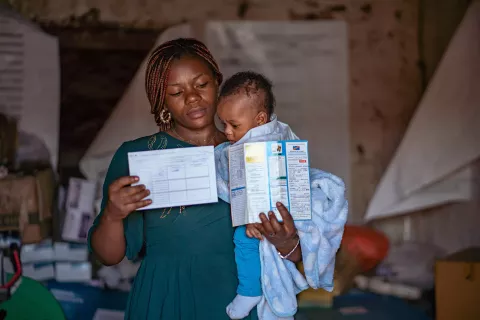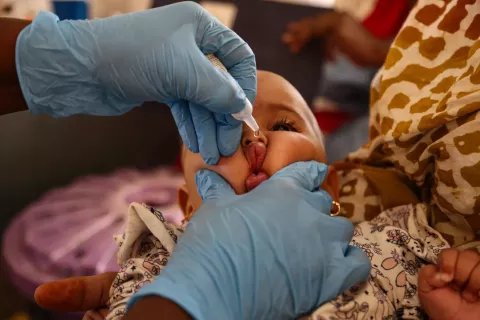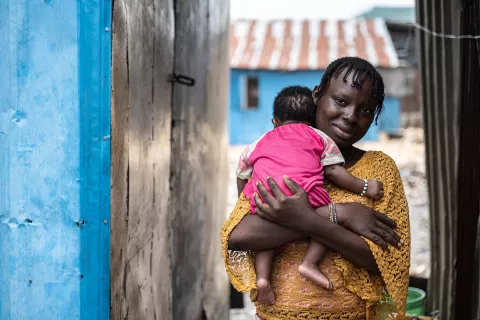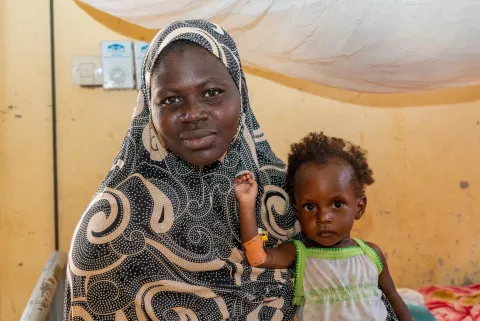International Day of Education 2024: Advancing Learning for Lasting Peace
Joint Statement by UNESCO and UNICEF in sub-Saharan Africa
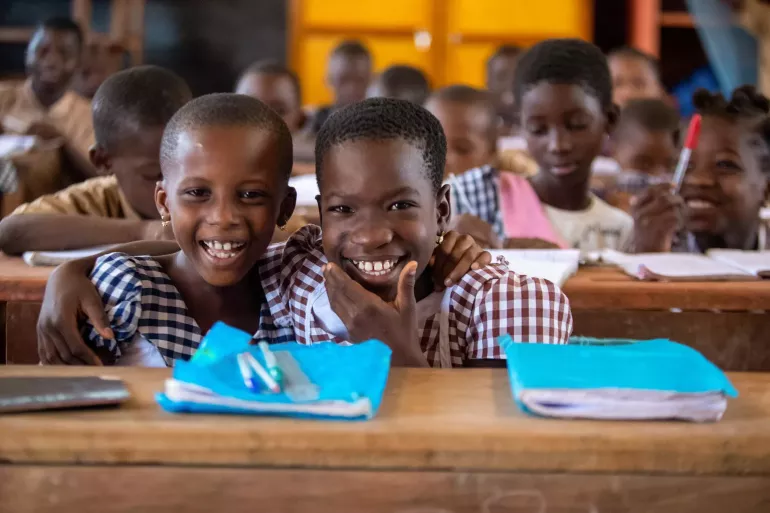
- Available in:
- English
- Français
Dakar/Harare/Nairobi/Yaoundé, 24 January 2024 – On the International Day of Education, dedicated to Learning for Lasting Peace, we reaffirm our commitment to supporting governments in Africa to provide universal access to quality education for every child. Recognizing education as an inherent right and a fundamental pillar for peaceful societies, the call emphasizes the pivotal role of education in fostering inclusive, democratic, and participatory governance.
“We commend African governments for showing leadership at the Transforming Education Summit in discussing solutions to achieve inclusive and equitable quality education for all by 2030 and reiterating their commitments towards education as a basic human right.
“Despite the progress made in recent decades, we acknowledge challenges that persist in achieving the Sustainable Development Goal (SDG) 4 on education of the 2030 Agenda for Sustainable Development. More than one in four (29 per cent) school-age children were still out of school on the continent, with a concerning statistic revealing that the out-of-school population in sub-Saharan Africa increased by 12 million over 2015–2021 (UNESCO Global Education Monitoring Report, 2023). Quality is also of concern even for those in school: 9 out of 10 children in sub-Saharan Africa cannot read and understand a simple text by the age of 10.
“It is therefore important that governments and partners maintain education at the top of the political agenda, emphasizing the importance of equitable domestic public financing. Education is the best long-term investment for building peaceful and sustainable societies.
“In 2024, which the African Union has designated as the Year of Education, we call for accelerated progress towards achieving SDG4. The shared mission involves turning high-level commitments from the Transforming Education Summit into concrete actions, equipping African learners with the skills, values, attitudes and knowledge that are essential for fully integrating into society and having the best possible future.
We urge governments and partners to strengthen efforts to:
- Promote equitable domestic public financing for education, prioritizing the most vulnerable children. This will help reduce disparities among learners and reach universal coverage. Countries with higher learning and years of quality schooling experience fewer conflicts and an increase in safety and security.
- Emphasize the importance of education in strengthening and sustaining peace, as outlined in SDG4, Target 4.7, through the promotion of a culture of peace and non-violence, global citizenship and appreciation of cultural diversity and life skills in line with the Recommendation on Education for Peace, Human Rights and Sustainable Development adopted on 20 November 2023 by 194 UNESCO Member States at the 42nd UNESCO’s General Conference.
- Rally multiple stakeholders across different sectors to create a movement, with young people at the center, towards a more robust 21st century education for all children and young people.
“This comprehensive call for action underscores the urgency and importance of a collaborative effort to transform education, making it inclusive, peace-oriented, and resilient for the challenges of the 21st century. Together, let us forge a future where education becomes the cornerstone of lasting peace and progress.”
XXX
For more information please contact:
Diane Yameogo, UNICEF West and Central Africa Regional Office, Tel: +221 77 332 43 26, diyameogo@unicef.org
Léonie Marin, Project Officer (communication), UNESCO Multisectoral Regional Office for West Africa, Tel: +221338649447 Email: l.marin@unesco.org
#EducationForPeace #LearningForAll #2024 #LetMeLearn
Media contacts
About UNICEF
UNICEF promotes the rights and well-being of every child, in everything we do. Together with our partners, we work in 190 countries and territories to translate that commitment into practical action, focusing special effort on reaching the most vulnerable and excluded children, to the benefit of all children, everywhere.
For more information about UNICEF and its work for children in West and Central Africa, visit https://www.unicef.org/wca.
Follow UNICEF West and Central Africa on Twitter, Facebook, Instagram et Youtube

